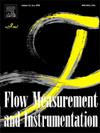航空发动机燃油计量装置压差控制元件稳定性影响因素的识别方法
IF 2.7
3区 工程技术
Q2 ENGINEERING, MECHANICAL
引用次数: 0
摘要
压差控制元件(PDCC)对维持航空发动机燃油计量装置(FMU)计量流量的稳定性起着至关重要的作用。为了保证计量流的稳定性,在李亚普诺夫第一方法的基础上,提出了一种通过分析特征值轨迹来识别影响PDCC稳定性因素的方法。建立了PDCC的高置信度非线性状态空间模型,利用雅可比矩阵建立了其线性模型。原始特征值轨迹是极其混沌的,这给分析设计参数的稳定性影响规律带来了困难。为了解决这个问题,根据最小距离原则和位置分配准则设计了特征值分类器。利用该方法,从28个设计参数中有效识别出了对PDCC稳定性有关键影响的6个因素,如增压锁紧阀节流孔开度面积等。在此基础上,揭示了FMU试验中低流量计量流量低频脉动的机理,并通过调节稳定性影响因素消除了不稳定工作点(振荡频率为28 Hz)的低频振荡现象。所提出的方法机械地揭示了设计参数如何控制PDCC的稳定性,只需要一个状态空间模型公式,同时消除了复杂的模型转换。该方法为面向稳定的PDCC设计提供了直接指导,为计量流量波动故障处理提供了可行的解决方案,具有较强的工业适用性。本文章由计算机程序翻译,如有差异,请以英文原文为准。
A method for identifying the factors impacting the stability of the pressure difference control component in aero-engine fuel metering unit
The pressure difference control component (PDCC) plays a crucial role in maintaining the metering flow stability of the aero-engine fuel metering unit(FMU). To ensure the stability of metering flow, a method for identifying factors impacting the stability of PDCC by analyzing the eigenvalue trajectories is proposed based on Lyapunov’s first method. The high-confidence nonlinear state space model of the PDCC is established, and its linear model is obtained by the Jacobian matrix. The original eigenvalue trajectories are extremely chaotic, which makes it difficult to analyze the stability influence law of design parameters. To address the issue, an eigenvalue classifier is designed according to the principle of minimum distance and position assignment criterion. 6 factors which have a key effect on the stability of PDCC, such as throttling orifice opening area of the pressurized locking valve(PLA), are effectively identified from 28 design parameters by this method. Based on the results, the mechanism of low-frequency pulsations in metering flow at low flowrate during FMU testing is revealed, and the low-frequency oscillation phenomenon at an unstable operating point(with the oscillation frequency of 28 Hz) is eliminated by adjusting the stability-impacting factors. The proposed method mechanistically reveals how design parameters govern PDCC stability, requiring only a state-space model formulation while eliminating complex model conversions. The approach provides direct guidance for stability-oriented PDCC design and actionable solutions for fault handling of metering flow fluctuation, demonstrating strong industrial applicability.
求助全文
通过发布文献求助,成功后即可免费获取论文全文。
去求助
来源期刊

Flow Measurement and Instrumentation
工程技术-工程:机械
CiteScore
4.30
自引率
13.60%
发文量
123
审稿时长
6 months
期刊介绍:
Flow Measurement and Instrumentation is dedicated to disseminating the latest research results on all aspects of flow measurement, in both closed conduits and open channels. The design of flow measurement systems involves a wide variety of multidisciplinary activities including modelling the flow sensor, the fluid flow and the sensor/fluid interactions through the use of computation techniques; the development of advanced transducer systems and their associated signal processing and the laboratory and field assessment of the overall system under ideal and disturbed conditions.
FMI is the essential forum for critical information exchange, and contributions are particularly encouraged in the following areas of interest:
Modelling: the application of mathematical and computational modelling to the interaction of fluid dynamics with flowmeters, including flowmeter behaviour, improved flowmeter design and installation problems. Application of CAD/CAE techniques to flowmeter modelling are eligible.
Design and development: the detailed design of the flowmeter head and/or signal processing aspects of novel flowmeters. Emphasis is given to papers identifying new sensor configurations, multisensor flow measurement systems, non-intrusive flow metering techniques and the application of microelectronic techniques in smart or intelligent systems.
Calibration techniques: including descriptions of new or existing calibration facilities and techniques, calibration data from different flowmeter types, and calibration intercomparison data from different laboratories.
Installation effect data: dealing with the effects of non-ideal flow conditions on flowmeters. Papers combining a theoretical understanding of flowmeter behaviour with experimental work are particularly welcome.
 求助内容:
求助内容: 应助结果提醒方式:
应助结果提醒方式:


